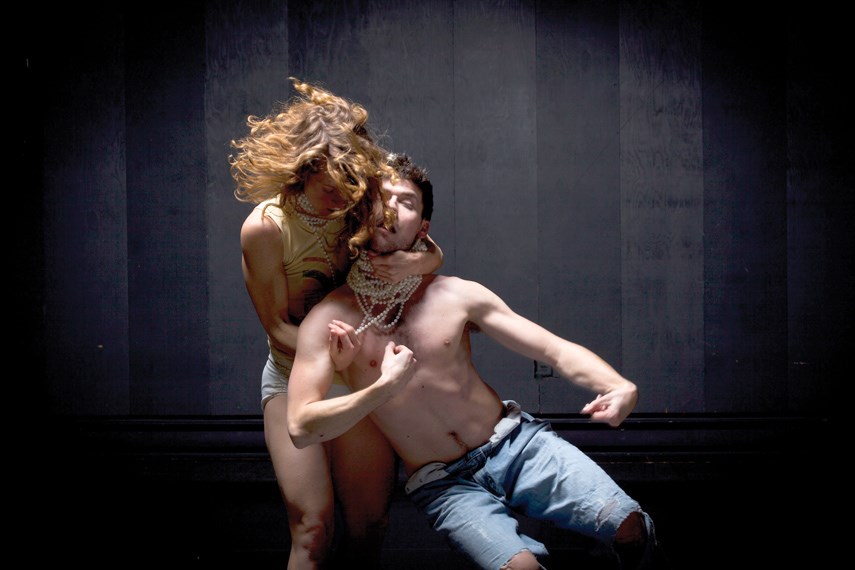Plastic Orchid Factory's production of Animal Triste runs October 19, 20 and 21 at 8 p.m., Scotiabank Dance Centre, 677 Davie Street, Vancouver.
Director and choreography Mélanie Demers has toured internationally with her dance production Animal Triste, a piece that deals with commonly held universal themes – but she’s hesitant about necessarily calling dance a universal language.
“I always like to argue otherwise,” Demers says with a laugh when talking about the commonly held trope that dance speaks a language understandable to all. “Dance is not the language that we speak, but it’s another language.”
Although the Montreal-based artist understands the universal appeal of dance, often due to its focus on movement, rhythm and an absence of spoken language, she approaches the question philosophically.
“It’s very, very local. I’m born and raised in Montreal. I am a product of my city,” she says about what fuels the production. “In a way, we are only a product of where we live and who we are.”
Animal Triste, which premiered last year, was partly inspired by Yuval Noah Harari’s Sapiens: A Brief History of Humankind, a non-fiction book that surveys the history of humankind and ponders what might come next for us.
Demers’ production borrows that book’s four-part structure as it weaves its own tale of inner turmoil regarding human nature.
“We came up with a piece that’s very different than what I’m used to presenting – much less theatrical, much more movement based. And the use of time is very different and I think this is very instrumental in how I approach the evolution of humankind,” she says.
The production features four dance performers and is divided into four chapters. After premiering in Montreal, the production has also had runs in Italy and a tour is currently being set up for a showing in Rio de Janeiro, Brazil.
“We’re hoping to go back to Europe and we’re also hoping to make sure we visit a few cities in Canada,” she says.
Through movement, music and a choreographic language that relies heavily on improvisation, Demers’ production explores the biological evolution of humans, the social-cultural revolution, the emergence of the clan and the family, and ends with the emergence of mankind as an island unto itself, self-centred and, for Demers, representing “some sort of individual, spiritual quest.”
Demers, who toured as a dancer for 10 years and started her own dance company, MAYDAY, in 2007, says she has always been drawn to exploring the darker zones of the human condition in her work.
“I absolutely love going to dark places – but only to imagine and to have fun and honour life,” she says.
For Demers, dance can be a transformative, instructive experience, a way to connect with what we might not understand – as opposed to speaking a universally understandable language.
“What is really interesting is to actually confront what you’re doing in your little corner. Confronting different art, different cultures, different ways of understanding the world and different ways of navigating the world. I guess for me the privilege of going elsewhere to present my work is to actually make my work better.”
She stresses that the strength of her performers has also helped improve her work.
The production, which stars Marc Boivin, James Gnam, Brianna Lombardo and Riley Sims, gives the characters flexibility to create something wild, spontaneous and new every show.
“They’re so committed,” she says. “A lot of my thinking these days is to make a difference between choreography and dance. In a way, set choreography can be very boring and it can be very safe. … I think with this production you really have to come and see the performers because they have so much responsibility in making this work.”



